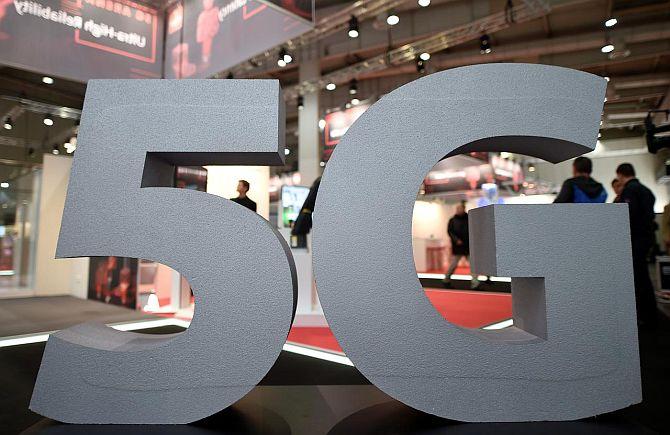It is learnt that the defence ministry is refusing to let go of its 100 MHz spectrum, which was allotted earlier. In that case, the department of telecommunications (DoT) will be left with only 175 MW of 5G spectrum of the total 300 MHz.

The quantum of airwaves to be offered for the 5G spectrum may shrink further as the defence ministry has refused to part with its share of 100MHz spectrum, reducing the total 5G airwaves to 175 MW.
This is nearly 60 per cent of what was proposed earlier.
This may force mobile service companies to stay away from the bidding process.
It is learnt that the defence ministry is refusing to let go of its 100 MHz spectrum, which was allotted earlier.
In that case, the department of telecommunications (DoT) will be left with only 175 MW of 5G spectrum of the total 300 MHz.
Indian Space Research Organisation (ISRO) also has 25 MHz airwaves earmarked for its use.
“We have to now award the spectrum in chunks of 25 MHz, with a cap of 100 MHz,” a senior official told Business Standard. The cap essentially means that a single bidder cannot get more than 100 MHz of 5G spectrum.
Industry is clearly unhappy with the development and feels that earlier 5G spectrum pricing was steep and now even the quantum has become a challenge.
“There are other bands that DoT can look at for the defence ministry. There are alternatives available for the defence sector but there is no alternative for us,” said Rajan Mathews, director general, Cellular Operators Association of India (COAI).
Mathews said the cap of 100 MHz will ensure there is one more player that stands a chance to buy the spectrum.
The upcoming 5G spectrum auctions have received a mixed response from the industry so far.
Some players have said they may not participate in the auctions, mainly because of the higher reserve price of 5G airwaves.
Mathews said majority of the telecom operators have indicated that 5G spectrum is prohibitively expensive and that they can’t afford it. Former Vodafone Idea chief executive officer (CEO) Balesh Sharma had also said that the current reserve price for 5G spectrum was “exorbitant”.
Bharti Airtel’s managing director (MD) & CEO of India & South Asia and executive director Gopal Vittal had said, in the post earnings investor call, that at the current prices recommended by the Telecom Regulatory Authority of India (TRAI), 5G spectrum would be unaffordable and hoped that the government would reduce prices.
“Given that the state of 5G ecosystem is still nascent, we would hope that the government brings down the price of the spectrum and reserve price of the spectrum. That is the stage when we would look seriously at 5G,” Vittal had said.
TRAI had recommended a pan-Indian base price of Rs 492 crore per MHz for 5G radiowaves, while lowering the base price of frequencies that remained unsold in the 2016 auctions. Airwaves in the 3,300-3,600 MHz 5G band will be auctioned in the block size of 20 MHz.
The reserve price for the premium 700 MHz spectrum, which went unsold in the 2016 auctions, was reduced by more than 40 per cent to Rs 6,568 crore per MHz all-India from Rs 11,485 crore in 2016.
TRAI recommended a base price of Rs 4,651 crore for paired spectrum in the 800 MHz band covering 19 circles, Rs 1,622 crore per MHz for the 900 MHz band covering seven circles, Rs 3,399 crore per MHz in the 2,100 MHz band covering 21 circles, and Rs 821 crore per MHz in the 2,500 MHz band covering 12 circles.
It also sought Rs 960 crore per MHz for unpaired spectrum in the 2,300 MHz band on a pan-Indian basis.
The central government earned Rs 65,789 crore from spectrum auctions in 2016. The bands sold were 2G, 3G, and 4G.










